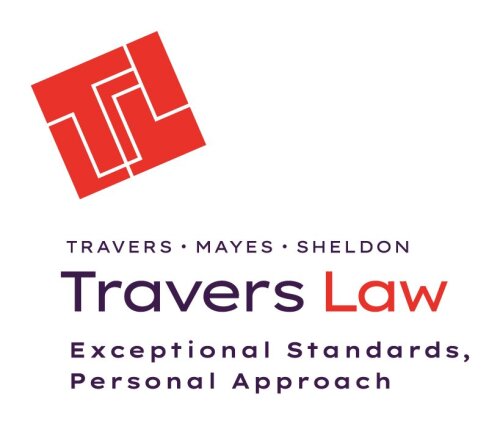Best Guardianship Lawyers in Waterloo
Share your needs with us, get contacted by law firms.
Free. Takes 2 min.
List of the best lawyers in Waterloo, Canada
About Guardianship Law in Waterloo, Canada
Guardianship law in Waterloo, Ontario, concerns the legal authority to make decisions for individuals who are unable to care for themselves or manage their property due to age, incapacity, or disability. Guardianship may involve the care of minors, adults with diminished capacity, or those suffering from illness or injury. The process is governed primarily by Ontario's Children’s Law Reform Act for minors and the Substitute Decisions Act, 1992 for adults. The goal is to safeguard the rights and well-being of vulnerable individuals while providing oversight for those who act on their behalf.
Why You May Need a Lawyer
Guardianship matters can be complex and often involve significant legal, ethical, and emotional considerations. Common scenarios where legal assistance is helpful include:
- Pursuing guardianship of a minor: After the death or incapacity of parents, someone may need authority to make decisions for their child.
- Seeking guardianship for an incapacitated adult: When a loved one is unable to make personal or financial decisions due to illness, age, or disability.
- Contesting or defending against a guardianship application: If you disagree with an application for guardianship or are accused of not acting in someone’s best interests.
- Appointing a temporary or emergency guardian: When an immediate decision-maker is urgently required.
- Understanding your duties: If you have been appointed as a guardian and need guidance about your legal duties and obligations.
- Terminating or changing guardianship arrangements: When circumstances change and guardianship orders need to be modified or ended.
A lawyer helps you navigate the paperwork, represent your interests in court, and ensure compliance with the law.
Local Laws Overview
In Waterloo, as elsewhere in Ontario, guardianship is primarily regulated by provincial laws:
- The Substitute Decisions Act, 1992: Sets out rules for the appointment of guardians for property and personal care for adults who are mentally incapable.
- The Children’s Law Reform Act: Deals with guardianship arrangements for minors, focusing on who may care for and make decisions about a child.
- Application Process: To become a guardian, you typically must apply to the Ontario Superior Court of Justice. The process involves submitting forms, medical evidence of incapacity, and notification of interested parties.
- Types of Guardianship: There is guardianship of the person (decisions about health, life, and well-being) and of property (finances and assets). One person can hold both, or they may be split.
- Duties: Guardians are fiduciaries, meaning they must act in the best interests of the person under guardianship and are accountable to the court.
- Oversight: Guardianship is supervised by the Ontario Public Guardian and Trustee (OPGT), which can intervene if concerns arise.
- Alternatives: Other arrangements, such as Powers of Attorney, trusts, or supported decision-making, may be more appropriate in some situations.
Frequently Asked Questions
What is the difference between guardianship of property and guardianship of the person?
Guardianship of the person involves making decisions about personal care, health, and living arrangements, while guardianship of property relates to managing finances and assets.
Who can apply to be a guardian?
Generally, family members, close friends, or professionals can apply for guardianship. The court decides based on the best interests of the individual in need.
Do I always need to go to court to become a guardian?
For adults, a court order is usually required. For minors, guardianship can sometimes be addressed by will or court process, depending on the circumstances.
What evidence do I need to provide in a guardianship application?
Typically, medical evidence of incapacity, affidavits, and sometimes a management plan detailing how you intend to handle the individual’s affairs.
Can a guardianship be temporary or emergency?
Yes, Ontario law allows for urgent or interim guardianship orders when immediate action is needed to protect someone.
Can guardianship be shared or split?
Yes, more than one person can be appointed as co-guardians, and different people can handle personal care or property issues.
What are a guardian’s legal duties in Ontario?
Guardians must act in the best interests of the vulnerable individual, keep accurate records, avoid conflicts of interest, and report to the court or OPGT if required.
How can a guardianship be ended or changed?
Guardianship orders can be changed or terminated by the court if the person regains capacity, if circumstances change, or if a guardian is not acting appropriately.
Is a Power of Attorney the same as guardianship?
No. A Power of Attorney is created voluntarily by a person while they are capable. Guardianship is imposed by a court when a person is already incapable and has not made prior arrangements.
How long does the guardianship process take?
It varies, but the full process can take several weeks to months, especially if there are objections or complex situations.
Additional Resources
If you need further information or assistance, the following resources may be helpful:
- Ontario Public Guardian and Trustee (OPGT): Provides oversight and guidance for guardians, maintains resources for families and professionals.
- Family Court Branch of the Superior Court of Justice: Processes guardianship applications and provides related forms and guidance.
- Legal Aid Ontario: May offer financial assistance or referrals to people who qualify for legal help in guardianship matters.
- Community Legal Clinics: Offer free or low-cost information and advice on guardianship-related issues to residents in Waterloo and the broader region.
- Local social services agencies: May assist with guardianship applications or support services for vulnerable populations.
Next Steps
If you believe guardianship may be required for yourself or a loved one, consider the following steps:
- Gather information about the individual's current condition and capabilities, including medical reports and financial documentation.
- Research the requirements and process for guardianship in Ontario. Review forms and instructions provided by Ontario’s court system and the OPGT.
- Contact a local family lawyer or community legal clinic for a consultation to discuss your situation, potential alternatives, and the best way forward.
- If possible, discuss your intentions with family members and other interested parties to minimize disputes later in the process.
- Proceed with submitting the appropriate guardianship application if recommended by your legal advisor, ensuring all documents are complete and accurate.
- Attend court hearings as required and be prepared to answer questions about your suitability and plans as a guardian.
Seeking professional legal advice is recommended to ensure your actions align with legal requirements and the best interests of the person under guardianship.
Lawzana helps you find the best lawyers and law firms in Waterloo through a curated and pre-screened list of qualified legal professionals. Our platform offers rankings and detailed profiles of attorneys and law firms, allowing you to compare based on practice areas, including Guardianship, experience, and client feedback.
Each profile includes a description of the firm's areas of practice, client reviews, team members and partners, year of establishment, spoken languages, office locations, contact information, social media presence, and any published articles or resources. Most firms on our platform speak English and are experienced in both local and international legal matters.
Get a quote from top-rated law firms in Waterloo, Canada — quickly, securely, and without unnecessary hassle.
Disclaimer:
The information provided on this page is for general informational purposes only and does not constitute legal advice. While we strive to ensure the accuracy and relevance of the content, legal information may change over time, and interpretations of the law can vary. You should always consult with a qualified legal professional for advice specific to your situation.
We disclaim all liability for actions taken or not taken based on the content of this page. If you believe any information is incorrect or outdated, please contact us, and we will review and update it where appropriate.










